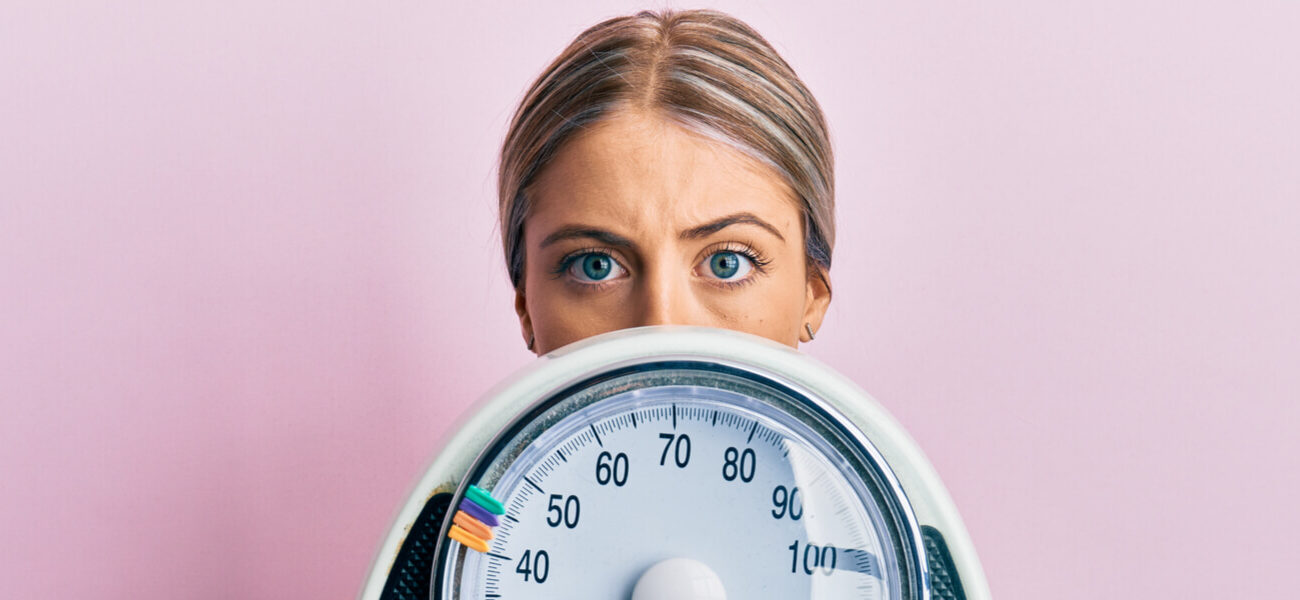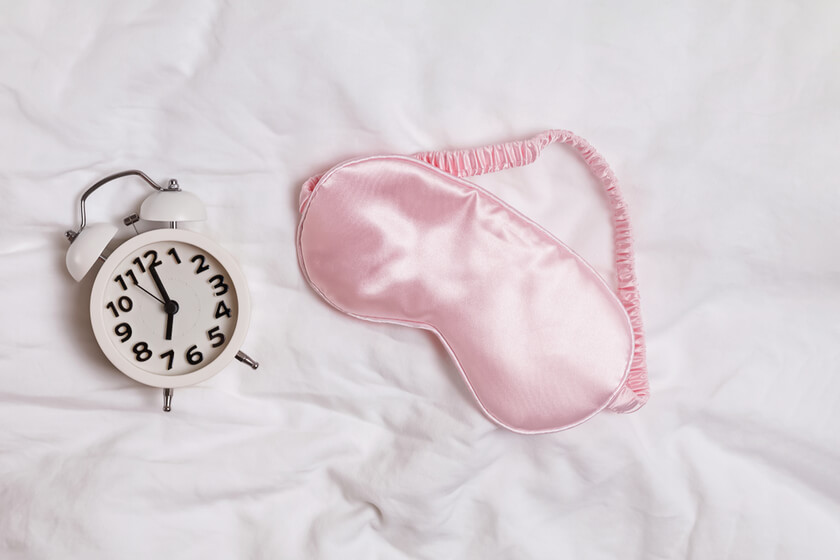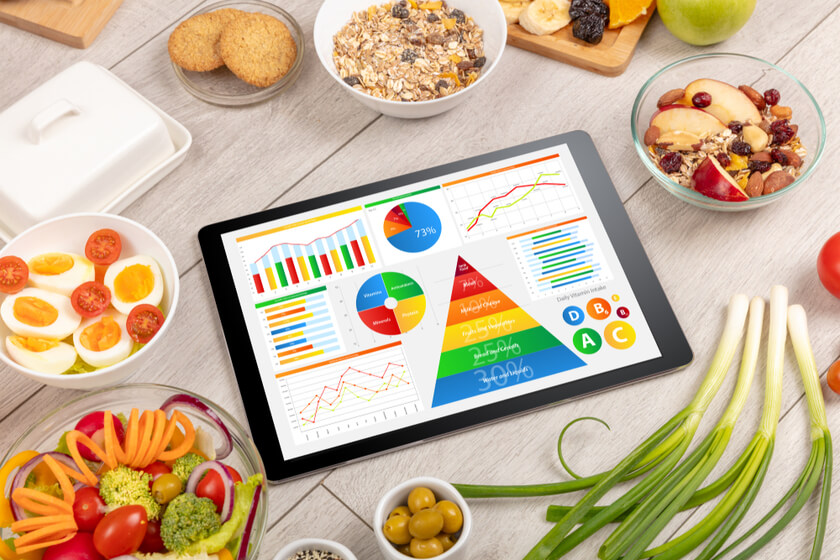Why Am I Not Losing Weight On a Calorie Deficit? 12 Common Culprits

You are physically active, have changed your diet, and are lowering your caloric intake. However, the figure on the weight scale doesn’t budge. You feel demotivated and ask yourself, “Why am I not losing weight in a calorie deficit?”
The science behind weight loss is elementary. If you are in a calorie deficit, you will lose weight eventually. However, this is easy in theory, and sometimes the progress doesn’t go as planned.
It might be confusing and frustrating for you not to lose weight, yet you are in a calorie deficit. The key is finding the culprit that is deterring your weight loss journey and adjusting accordingly.
How Long Does It Take to See Results in a Calorie Deficit?
If your first course of action addresses diet changes, you can expect to see a 1 to 3-pound weight loss in a week if you are on a 500-calorie deficit.
Various factors affect how fast your results will show. For instance, if a person’s body type falls in the obese range in the body mass index, their fat loss will be faster during the early stages of the program.
To achieve a healthy deficit, it might be beneficial to count calories using a calorie-counting app or simply writing it down every time you eat.
What you eat is equally as important as movement, so try to incorporate workouts into your daily routine, whether it is your daily walk or strength training. Such activities also help to create a calorie deficit and lose weight more effectively.
12 Possible Reasons Why You Are Not Losing Weight on a Calorie Deficit
If you are trying to lose weight, eating in a calorie deficit is a tried and tested weight loss method. It is one of the definitive laws of thermodynamics, and your body is not exempt from these laws.
If you consume less food and burn excess calories, your body will use energy reserves to support your daily needs. Several possible problems might slow down your weight loss progress in a calorie deficit.
#1 Water weight
Your body first loses water weight before losing fat. Sometimes, it is just water weight shifting in your body and distorting your actual progress. Higher water retention reflects a higher scale weight, but it does not necessarily mean you have high body fat.
Factors such as eating salty foods, high-carb diets, hormonal changes in your body, some medications, and lack of exercise can lead to water retention. Water retention can reflect a high weight on a scale even if you are on a calorie deficit.
#2 Increase in muscle mass and bone density
In most cases, gaining muscle mass requires being on a calorie surplus. However, if you are new to fitness and incorporate strength training in your routine, it causes body recomposition and makes your body lose fat and gain muscle simultaneously.
Eating on a calorie deficit and engaging in physical activities such as walking and weight training can cause your weight to stagnate.
Physical exercise also increases bone density, maintaining weight or even leading to slight weight gain. Muscle gain is ideal for your body composition and fitness.
A pound of fat weighs the same as a pound of muscle, but muscle mass occupies less space and is more metabolic than body fat.
#3 Poor sleeping patterns
Poor sleeping patterns can inhibit weight loss despite being on a calorie deficit. Sleep deprivation and fatigue affect your brain’s reward center. Sleep-deprived people are more likely to choose unhealthy foods such as high-carb foods and late-night snacks.

Advertisement
Sleep deprivation also affects your body’s metabolism by increasing blood sugar levels and insulin resistance. Poor sleeping patterns can also result in lower energy levels necessary for physical activities.
Adequate quality sleep is an essential factor of healthy weight loss, and disrupting your sleeping patterns affects your weight loss progress.
#4 Adjust your diet
A healthy balanced diet promotes weight loss and overall body health. It lowers your stress levels, boosts your immunity, and improves your mood.
Some adjustments you can make include reducing sugar, a high-carb diet, and eating more lean proteins and healthy fats.

It is more difficult for your body to break down protein than carbs and fat. Your body burns more calories digesting protein-rich foods than high-carb or fatty foods.
Eating a high protein diet means that your body will burn more calories at a faster rate. However, eating less protein means that your body weight will plateau or increase slightly when on a calorie deficit.
#5 Reduced metabolic rate
When computing the number of calories we need to burn, we start with the basal metabolic rate (BMR). This is the number of calories our body burns while at rest.
When your body is in a calorie deficit, hormonal changes slow down your BMI. This slows down your weight loss even if you are on a crash diet.
People with a low metabolic rate find it harder to lose weight than people with a high metabolic rate. Metabolism is when your body breaks down food through a series of chemical reactions to provide the energy necessary for body functions.
Contrary to popular belief, your metabolic rate reduces as you lose excess weight. The lighter you are, the lower your metabolic rate as your body does not need to spend a lot of energy moving body mass around.
Therefore, the more weight you lose, the fewer calories you need to consume to maintain a consistent weight loss curve. To counter a reduced metabolic rate, you should stick to a calorie-restricted diet, drink more water, and do more high-intensity physical activities.
#6 You have reached a weight loss plateau
An ideal weight loss progress curve is not linear but is phased in different periods of weight loss and weight maintenance. When you reduce the number of calories you consume, your weight will drop fast, but the process will slow down and stop eventually.
The initial weight loss after reducing intake of calories is due to losing water weight and not fat loss. The progress then stalls as the body tries to adjust.
If your weight loss plateaus yet you have not reached your desired body fat percentage, you should increase the calories burned by increasing physical activity.
However, it would help avoid an extremely low-calorie diet as it has some health risks. Instead, it would help if you focused more on physical exercises like lifting weights; it encourages fat loss and increases muscle mass.
#7 Increased stress levels
For most people, stress has a direct impact on weight. It can lead to gaining weight or severe weight loss in some situations. When stressed, your body perceives it as a threat and goes into a “fight” or “flight” response.
Your body readies itself for stressful situations by releasing hormones such as cortisol and adrenaline. Adrenaline, one of the body’s steroid hormones, prepares your body for intense physical activities, but it might reduce your desire to eat.

Cortisol, also known as the stress hormone, signals your body to suppress functions deemed non-essential during a crisis. These are the digestive, reproductive, and immune system responses.
Increased stress leads to sleep disruption, which affects the production of cortisol, thus consequently affecting your body’s metabolism.
High-stress levels lead to rapid weight gain in the face, chest, and abdomen. High cortisol levels affect how your body uses up food as it converts food into stored fats rather than energy.
You can reduce your stress levels by avoiding the trigger factors, sticking to a regular eating schedule, getting enough sleep, and increasing your physical activity.
#8 Increase physical activity
Increased physical activity is beneficial to the mind and body. It also boosts your mood and improves the quality of sleep you get. If you reduce your food intake and neglect exercise, you will likely lose muscle mass and decrease your metabolic rate.

As discussed earlier, reducing your metabolic rate slows down your weight loss. On the contrary, increased physical activity minimizes muscle loss and increases your metabolic rate.
If you have more lean mass, it will be easier for you to lose weight and maintain the weight loss. On the other hand, overexercising is unsustainable in the long term, impairs the production of adrenaline, and increases stress levels.
Cardio and lifting weights several times a week is a sustainable approach to losing weight and maintaining a high metabolic rate.
#9 Health issues
Certain health conditions such as hormonal changes, hypothyroidism, chronic stress disorder, and even menopause affect weight loss. If you have followed all the weight-loss strategies and cannot see any significant change, you should seek your doctor’s medical advice.
Your doctor can provide you with advice on underlying health issues or medication with side effects that might be inhibiting your weight loss.
#10 Inconsistencies in weight measurements
Taking daily weight measurements is a good idea if you have a goal of losing weight. However, it would be best to take weight measurements at the same time every day. The ideal time is weighing yourself in the morning after using the bathroom and before taking breakfast.
Taking weight measurements at the same time during the day gives you accurate and consistent weight measurements. You will be heavier if you weigh yourself after eating or drinking because the food is in your gut.
If you still have trouble losing weight, you should know that changes in the weight scale are not the only measure of weight change. Weight can fluctuate up to 4 pounds per day depending on the food consumed.
One of the ways you can record objective data is by taking weekly progress photos. It will also help if you take measurements of your chest, arms, and stomach as they will reveal whether you are losing fat even if the number on the scale says otherwise.
If you are lifting weights, an increase in strength also correlates directly with an increase in muscle mass, and chances are you are gaining muscle and losing fat.
#11 You are not tracking your calories correctly
Sometimes, you might be sure that you are in a deficit, but you are not tracking your calories accurately. You should track everything you consume and track the cooked weight of food instead of the raw weight.
Sometimes, in tracking calories, we may overestimate the total daily energy expenditure (TDEE), which refers to the total calories you burn daily. Most people overestimate their TDEE as they do not know how many calories they burn daily.

You should pick a specific number of calories and stick to it. If you lose weight, your calorie intake is less than your TDEE. If your weight stagnates, this signifies that you need to burn more calories as your calorie amount is almost the same as your TDEE.
As you lose weight, your TDEE will change as your metabolism will reduce as you get lighter. It would be best to reassess your caloric intake when you get to this point.
#12 Menstrual cycle
The menstrual cycle plays a role in weight fluctuations among women. This is mainly due to water weight gain, so you should also consider this if you experience weight fluctuations during or around this period.
Is Calorie Restriction Or Intermittent Fasting Better For Weight Loss?
Skipping meals is a perfect way to lower your calorie intake and lose weight without even thinking about it. It also has many health benefits, including better digestive health, improved immunity, lower insulin levels, and longevity. Counting calories might be hard, annoying, and hard to do every single day.
Yes, intermittent fasting might be more restrictive (as it requires not eating anything for a selected amount of hours), yet better for your overall health, so if you are choosing between them, give the IF method a try and see how your body reacts.
This method is way easier if you have good support, and that’s where the DoFasting app comes in. This app is a personalized intermittent fasting assistant to help you reach your weight goals. Each person has different goals, and the app starts with a questionnaire to understand the habits, preferences, and desired results. The app also has a customized daily intermittent fasting schedule and meal plan recommendations from professional nutritionists.

Your Personal Intermittent Fasting App
- Progress tracker and calendar
- Calorie tracker
- More than 5,000 healthy recipes
- Training routines
- Daily motivation and tips
- Water intake targeting
- Daily caloric intake tracker
Your dieting journey does not have to be boring, as there are more than 5000 recipes to choose from that make your intermittent fasting easier.
Most people do not follow through with their weight loss plans, but the DoFasting app motivates you and doubles up as an accountability partner, helping you stay on track and be consistent.
The app has impressive features that best suit your lifestyle. It has a progress tracker, which motivates and helps celebrate your success. The app also shows you the exact number of calories you need and how much exercise is enough to help you attain your goals.
The DoFasting program also has short workout routines you can perform efficiently, increasing your metabolic rate and helping you burn calories. These workouts are also delivered at the best time to coincide with your daily metabolic boost.
Sometimes all you need is a slight nudge to stay on the weight loss course. Daily motivation boosts and messages help you steadily progress to success.
The calorie tracker in the app also helps you spend less time figuring out what to eat and how not to overdo the daily calorie intake. Within a short time, you will manage to build better habits.
The app is available on both iOS and Android, and it is translated into German, Spanish, Italian, Dutch, French, Swedish, Korean, and Portuguese.
How Does a Calorie Deficit Work?
Maintaining a sustainable calorie deficit is a vital part of weight loss. It would be best to consume fewer calories than you burn to be on a deficit.
The body needs a specific number of calories to perform daily functions. Several factors such as sex, age, weight, height, and physical activity levels affect the number of calories a person needs in a day.
Maintaining a calorie deficit is a proven way of losing weight. You can increase your calorie deficit by changing your diet and increasing your physical activity levels. Most nutritionists advise adopting both methods for optimal results.
Is a Calorie Deficit Healthy?
If you need a long-term weight loss strategy, a calorie deficit is a healthy, effective, and sustainable weight loss approach. It is also one of the best ways to increase longevity.
A calorie deficit of 500 is enough for healthy weight loss. This way, you will manage to lose a pound a week. However, it can be unhealthy if you do not supply your body with all the necessary nutrients.
Replacing all your sugary beverages with water, avoiding processed foods, and eating wholesome home-cooked meals can help you get into a calorie deficit and improve your weight loss efforts without calorie counting.
A Word From our RD
A healthy calorie deficit is a slow, sustainable, and maintainable weight loss strategy. Eating on a calorie deficit is a long-term weight loss plan and is more effective than restrictive fasting.
A calorie deficit has proven health benefits such as weight loss and reducing age-related disorders. Studies also show that people with a calorie deficit have lower risks of contracting diabetes and cardiovascular disease.
When starting a calorie deficit, you should first consult your doctor to estimate your basal metabolic rate (BMR). Your doctor will then provide medical advice on the daily calorie range you need to maintain.
Focusing on your calorie deficit is helpful, but a few things can throw a wrench in your progress. Ensure you give other factors such as stress management, mental health, sleep, balanced diet, and exercise adequate attention.
Conclusion
Your weight loss plan does not have to be miserable. Maintaining a calorie deficit is more enjoyable and practical than restrictive fasting.
For most people, a calorie deficit results in weight loss. The reasons mentioned above explain why you may not be losing weight despite all your efforts. It would be best to work with your doctor to create a healthy and sustainable eating plan to reach your weight loss goals.
If you are not sure where to start, intermittent fasting apps might help you.
P.S. Watch our video about calorie deficit and weight loss!

Your Personal Intermittent Fasting App
- Progress tracker and calendar
- Calorie tracker
- More than 5,000 healthy recipes
- Training routines
- Daily motivation and tips
- Water intake targeting
- Daily caloric intake tracker







Comments (0)